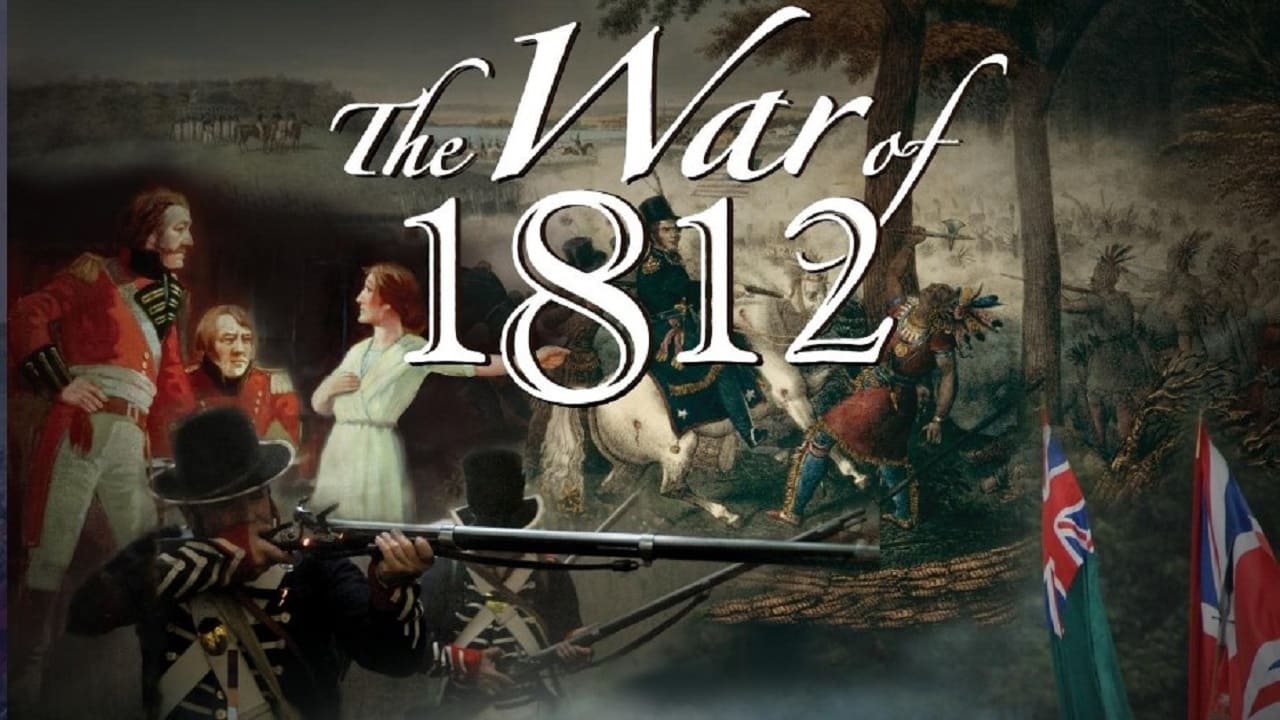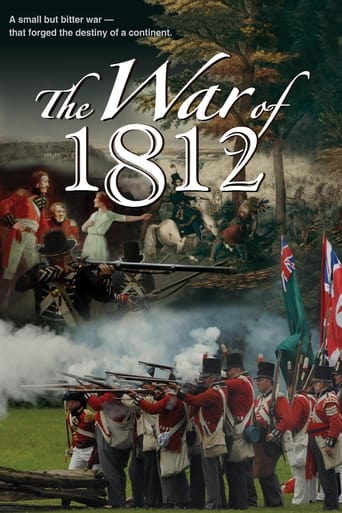Greenes
Please don't spend money on this.
Reptileenbu
Did you people see the same film I saw?
MoPoshy
Absolutely brilliant
Tobias Burrows
It's easily one of the freshest, sharpest and most enjoyable films of this year.
actualvisitor
Quick Google facts:
1) Canada didn't declare independence until July 1st,1867, more than fifty years after the War Of 1812. Canada was a colony of Great Britain and therefore its citizens were British subjects, not citizens of a nation named Canada that didn't exist yet. Conclusion: the militia that fought alongside were no more professional soldiers than the United States militia they faced on the battlefield.
2) In 1931 Canada was granted "full autonomy" (internal and external), along with Australia, by Great Britain by the Statute Of Westminster. BUT Great Britain's Parliament retained the ability to modify the Canadian Constitution.
3) The Canada Act Of 1982 passed by Parliament removed their own ability to modify Canada's Constitution.1982 was 36 years ago at the time of this writing: A statistically 45% of the people reading this were alive when Canada became a full fledged member of the international community of sovereign nations.
This has been some background into some easily researchable FACTS:
Like virtually all of Holt, Garey, and Chowder's work, this film is also revisionist and slanted for some goal known only to them.
A truly remarkable lack of QUALIFIED experts marks this work as well; individuals with their doctorates are VERY VERY happy to share their knowledge for such shows; let's be honest, history is neither sexy nor particularly engaging for those of us destined to repeat it. How come they couldn't find and QUALIFIED experts? Not one doctorate: This is virtually unheard of in the world of documentary infotainment. Every "expert" they interviewed had several well recognized counterparts they would have been happy for their 15 minutes of fame!
(Spoiler: Documentarians with an agenda rarely use qualified, recognized experts. Such experts generally are emotionally neutral and stick to facts without emotional overtones. This makes it hard to slant the bits of the interview they use for their programs.)
CONCLUSION: IF YOU HAVE THE BRAIN POWER (AND ACCESS TO THE INTERNET) WATCH THIS SHOW FOR THE TIMELINE OF THIS LITTLE KNOWN CONFLICT, BUT DON'T GET SUCKED IN MY THE RHETORIC. DO A LITTLE RESEARCH OF YOU OWN AND MAKE UP YOUR OWN MIND THAT LIKE ALL ARMED CONFLICTS, WAR AND DEATH SUCK.
michelvega
A forgotten war for sure, but one that made the difference between Canada and the US, which is a lot to say about its importance. Two countries in need of heroes; natives that had to chose one side over the other and who would lose whatever their choice. All this historical significance bathing unfortunately in a soundtrack that too often overcomes anything that is said off screen. I really wanted to know more about what happened but every time there was a voice off screen explaining something, there was that insipid background music marring it all. And I struggled on, painfully trying to adapt my hearing to what was said above the obnoxious music. Sad to say, this kind of thing is frequent in documentaries, even good ones. It's as if there was competition between the sound effects and the story being told. The series The Civil War should be an example for producers: if you need to put music, at least make it uplifting, or sad, even joyous, not this syrupy hodgepodge we get in this documentary. And give us some quiet moments, perhaps nature sounds like the wind in the trees, the sound of rain... A few seconds of silence even, some time to reflect on what we see. All this I'll get eventually when it's translated into French. All that crap will be thrown out and we'll certainly get a better soundtrack, one where we can actually hear what is being said.
sddavis63
As a Canadian, I've grown up with at least some of the mythology left over from the War of 1812. "We won the war." That's a general Canadian attitude - correct in the sense, I suppose, that we didn't lose, we (more accurately in most cases the British with the assistance of Canadian militia and the native tribes) fought back the American invasions. "The militia myth" (the belief that the Canadian militia did the bulk of the fighting in Canada) is mentioned in this documentary. I know some of the big names from "our" side - Isaac Brock, Tecumseh and Laura Secord are appropriate to mention, naming, as they do, a British general, a native warrior and a heroic Canadian woman. I know about the American occupation and burning of the then Canadian capital of York (now Toronto) and I knew that in revenge for that act the British occupied and burned Washington. I knew about the mythology of the Battle of New Orleans that ultimately lifted Andrew Jackson to the presidency. I knew that many people consider this to be perhaps the most meaningless war ever fought. But there was still a lot packed into this that I didn't know. It was educational and it was balanced. It looked at all four sides of the war (American, Canadian, British and native) fairly and made good use of primary sources, particularly letters and journals of some of those who participated. And there was a lot I learned that I didn't know before.A lot was made of the incompetence of the American generals in the early part of the war. Most were old, veterans of the Revolution, called back into service, well past their prime and really with little stomach to fight. Some of the accounts are actually somewhat humorous, to the extent that war stories can be humorous. The vision of general William Hull, paralysed with fear and drinking himself into oblivion before he surrenders Fort Detroit was an example. For all that early incompetence, though, the film makes the point that the War of 1812 was, more than anything else, the catalyst for the development of a professional American Army with generals who, by war's end, were the equal of anyone's. While I knew about the burnings of York and Washington, I hadn't realized that both sides participated in a virtual orgy of burnings, particularly in the Niagara area - even including the American City of Buffalo - and left at least some parts of Niagara as a burned out wasteland. Since I live in Niagara, I'm familiar with the battles in this area, but not with that part of the story. I hadn't heard before of the Battle of Chateauguay, in which largely French Canadian militia beat back an American invasion. I also wasn't familiar with the British accepting large numbers of freed black slaves into their military. The War of 1812 hasn't really been remembered much by history, and it really wasn't (in the big picture) an especially important war - except in Canada, where it's seen as a sort of coming of age war; almost the moment of birth of a separate Canadian national identity. This documentary is both interesting and educational; a great source of information about this war which has either faded from memory or been turned into stories of mythic proportion. It's very well done. (8/10)
edwagreen
This is definitely an interesting documentary showing that the U.S. should not have been involved in this tragic episode of American history. It really doesn't say very good things about President James Madison. He seems to have been lucky that the war ended in the way he did so that history would look favorably upon him.The U.S. met with much failure while fighting in Canada,as the Canadians showed themselves to be a force to be reckoned with.Future Presidents William Henry Harrison and Andrew Jackson gained much notoriety from this war; this conflict was far more than England taking our soldiers off our ships and putting them in the British Armed Forces.Imagine that the British felt that capturing Baltimore, Md. would be a prize within itself. This documentary is such a prize.


